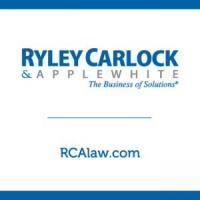HB 2213 – GPLET Leases
Arizona’s GPLET statute (enacted in 1996 as an economic development tool) in general allows a city, town, county or county stadium district (called a “Government Lessor”) to acquire title to land and improvements in a redevelopment area and/or a central business district of a city or town. The land and improvements are exempt from property taxes while the Government Lessor owns them, and the Government Lessor then leases them back to the developer (called a “Prime Lessee”), which then pays a significantly reduced “Government Property Lease Excise Tax” instead of paying ad valorem real property taxes. The property would typically qualify for an eight-year tax abatement, followed by a reduced or abated tax obligation (which could extend up to a total 25 years under pre-HB 2213 law). Many of the high-rise buildings in downtown Phoenix (including the one in which my office is located) are or have been GPLET lease projects. (Tempe is the next largest user of GPLET leases.)
In response to perceived misuse of the GPLET statutes, the Legislature amended the statutes in 2010 to increase GPLET rates for new leases entered into or on June 1, 2010, and required the Arizona Department of Revenue (“DOR”), beginning December 1, 2011, to annually adjust the GPLET rates for inflation for each type of property use, and to post the adjusted rates on its official website. The duration of GPLET leases was also reduced from 99 years to 25 years.
HB 2213 was introduced due to a 2015 Auditor General’s report that found widespread miscalculation and underpayment or (non-payment) of GPLET [under the pre-HB 2213 statute, the Prime Lessee calculated the tax] and a significant loss of property tax revenues to elementary and secondary school districts caused by taking GPLET properties off the tax rolls (leaving other taxpayers to pick up the tab for the difference).
1 Unlike normal property taxes, which are based on property value, GPLET rates are based on the size and type of the leased buildings. The pre-2010 GPLET taxing structure resulted in a GPLET liability of roughly 40% of the probable ad valorem property tax liability for a property located within a redevelopment area, and 60% of the probable ad valorem property tax liability for a property outside of a redevelopment area. The 2010 amendments resulted in a GPLET liability of roughly 60% of the probable ad valorem property tax liability for a property within a redevelopment area, and roughly 90% of the probable ad valorem property tax liability for a property located outside of a redevelopment area. The 2010 amendments also eliminated the automatic reduction in GPLET rates that had been provided to older buildings, and, beginning in 2012, allowed the DOR to adjust GPLET rates annually based on changes in the U.S. Bureau of Labor Statistics’ producer price index for new construction for the prior two fiscal years. The 2015 Auditor General’s report referenced above found very few GPLET projects paying taxes at post-2010 rates.
HB 2213 includes the following new restrictions:
-
The lease on government property must have been entered into within ten years of the authorizing development agreement, ordinance or resolution that was approved by the governing body of the Government Lessor before June 1, 2010 is subject to the original GPLET rates, provided that the lease was deemed compliant by the DOR. This prevents developers from resurrecting very old redevelopment agreements that were negotiated under much older versions of the GPLET statute.
-
The Government Lessor must maintain a public database, or post its lease agreements on a government website where the government property improvement is located, of all government property leases that are subject to tax. The 2015 Auditor General’s Report indicated that many GPLET leases were not being reported to County Treasurers as required.
-
The DOR must place links to all of the Government Lessors’ databases with active leases on the DOR website.
-
The Government Lessor (rather than the Prime Lessee) must calculate the excise tax for each prime lease. GPLET liabilities calculated by Prime Lessees were, according to the 2015 Auditor General’s report, almost always underpaid.
-
The lease period for which the GPLET is abated is limited to eight years, regardless of whether the lease is transferred or conveyed to subsequent Prime Lessees during that period.
-
The Government Lessor must convey the title to the government property and the underlying land to the current Prime Lessee within 12 months after expiration of the lease (unless the parcel is controlled by an airport subject to federal regulation or by the local federal transit authority).
-
The conveyed government property cannot qualify for classification as a Class 6 property or any other discounted assessment, regardless of its location or condition.
-
The limitations in paragraphs 5, 6 and 7 above do not apply to leases or development agreements for the lease of government property if either of the following occurred before January 1, 2017:
-
A corresponding resolution, ordinance or submitted request for proposal of the lease or intent to lease such property was approved by the governing body of the Government Lessor; or
-
A proposal was submitted to the Government Lessor in response to a request for proposals.
-
The Goldwater Institute participated in the drafting of HB 2213, and had requested additional curbs on perceived abuses that were not included in the version of HB 2213 that was ultimately enacted. As mentioned in my March 14, 2017 ACMLA legislative presentation, prior to the passage of HB 2213, the Goldwater Institute brought a lawsuit (Englehorn v. Stanton) against the City of Phoenix and a number of its elected officials to invalidate the Amstar/McKinley GPLET apartment project adjacent to the Angel’s Trumpet Ale House site in downtown Phoenix. I would expect the Goldwater Institute to continue to press forward with that suit and to challenge any HB 2213-compliant projects that the Goldwater Institute believes to involve state constitution violations.
SB 1197 – Real Estate Appraisal
SB 1197 makes conforming changes relating to the 2015 transfer of regulatory authority over appraisers from the Board of Appraisal to the Department of Financial Institutions’ new Real Estate Appraisal Division. SB 1197 also eliminates the requirement for a supervisory appraiser to personally inspect each appraised property with a registered trainee appraiser.
HB 2417 – Blockchain Technology/Electronic Signatures and Records
The Arizona Electronic Transactions Act (“AETA”) [A.R.S. Title 44, Chapter 26], was enacted in 2015 as part of a national effort to establish guidelines for electronic signatures used in private and business transactions, and applies to any electronic record or electronic signature created, generated, sent, received or stored as part of a transaction, except for the creation of wills or testamentary trusts and parts of the UCC. The AETA provides that records or signatures in electronic form cannot be denied legal effect and enforceability based on the fact that they are in electronic form.
Blockchain is a cloud-based electronic ledger that allows companies to digitally trade among a distributed network of computers without the need for a central authority like a bank or trade association. The data on the ledger is protected with cryptography, is immutable and auditable and provides an uncensored truth. The electronic ledger tracks all transactions, including the date, time and amount, and requires all parties involved with the network to agree and verify the transaction. Blockchain is best known as the technology behind bitcoin. Blockchains can be public (for public municipal data, real estate records, etc.) or private (for ownership records or business transactions), and funds can be transferred by wires automatically authorized by the Blockchain or via bitcoin or other virtual currency. HB 2417 recognizes smart contracts secured through Blockchain technology as an electronic signature or record and provides that a contract may not be denied legal standing, validity or enforceability solely because it contains a smart contract term.
SB 1084 – Electronic Records and Storage
The AETA governs transactional electronic records and electronic signatures, except wills and testamentary trusts. A.R.S. §47-7007 provides that an electronic record satisfies any law that requires a record to be in writing, and A.R.S. §44-7012 provides that retention requirements are satisfied by electronic records as long as the electronic record accurately reflects the original record and is accessible for future use. SB 1084 requires governmental agencies to allow the use of electronic records or electronic signatures.
2 A smart contract is an event-driven program, with state, that runs on a distributed, decentralized, shared and replicated ledger and that can take custody over and instruct transfer of assets on that ledger. A smart contract is a digital representation of the mutual agreements contained in a traditional contract as lines of software code that self-executes and self-enforces; it has the power to move funds between bank accounts, transfer property titles and reconcile payments, and can at any time be converted to a traditional contract form for legal purposes.
SB 1175 – Real Estate Transfer Fees
A.R.S. § 33-442 (enacted in 2010) provides that a provision in any declaration, covenant or other document (whether or not recorded) relating to real property is unenforceable against the real property or any subsequent owner, purchaser, lienholder or claimant on the property if the provision purports to both (a) bind successors in title to the specified real property, and (b) obligate the transferee or transferor of all or part of the property to pay a fee or other charge to a declarant or third party on transfer of an interest in the property or in consideration for permitting such a transfer. The prohibition against transfer fees does not apply to provisions requiring payment of a fee to an association if the fee being charged touches and concerns the land and no portion of the fee passes through to a third party, unless the third party is authorized in the document to manage real property within the association or was part of an approved development plan. The prohibition also does not apply to any fee payable to a nonprofit corporation for the sole purpose of supporting recreational activities within the association. SB 1175 adds 501(c)(3) and 501(c)(4) nonprofit organizations to the definition of “association” for the purpose of the exemption from the prohibition on real estate transfer fees.
SB 2157 – Rights-of-Way for Private Property Access
HB 2157 requires the State of Arizona (including the Arizona State Land Department) or any political subdivision of the State to grant a right-of-way for a term of at least 30 years to provide legal access to an owner’s private property upon the private property owner’s request if land owned by the State or a political subdivision of the State surrounds the private property. The State or political subdivision must determine the appropriate location and width of the right-of-way following reasonable consultation with the private property owner, and the State or political subdivision may relocate the right-of-way at its discretion.
SB 2262 – Rezoning Protest Requirements
Under current law [A.R.S. § 9-462.04], a municipality’s planning commission or hearing officer must hold a public hearing on any zoning ordinance and issue notice of the time and place of the hearing and a general explanation of the matter to be considered and the area affected at least 15 days before the hearing is held.
Notice must be provided (a) by first-class mail to each property owner (as shown on the last assessment) whose real property is directly governed by the proposed changes, (b) with utility bills or mass mailings that periodically include notices or other informational or advertising materials, or (c) in a newspaper of general circulation within the municipality, if the change to a zoning ordinance involves (1) a 10% or more increase or decrease in a number of square feet or units that may be developed; (2) a 10% or more increase or reduction in the allowable height of buildings; (3) an increase or reduction in the allowable number of stories of buildings; (4) a 10% or more increase or decrease in setback or open space requirements; or (5) an increase or reduction in permitted uses.
If the owners of 20% or more either of the area of the lots included in the proposed change, or on any side directly or opposite from a proposed change, within 150 feet of the change, file a petition against a proposed municipal zoning amendment, the change requires a favorable vote of three-fourths of all members of the governing body of the municipality. HB 2262 requires a protest to a change in a municipal zoning ordinance to be signed by the property owners opposing the proposed amendment, and requires the protest to be filed in the office of the clerk of the municipality by not later than 12:00 noon one business day before the governing body votes on the proposed change or at an earlier time and date established by the governing body of the municipality.
SB 1480 – Community Facilities Districts
SB 1480 revises a number of requirements in A.R.S. Title 48 with respect to the formation of a CFD and public infrastructure project approvals, and should be consulted if you are engaging in such a transaction.
SB 1413 – Roadway Maintenance in Annexed Areas
SB 1413 requires that an annexation petition specifically identify the entity that will be responsible for maintaining the existing rights-of-way and roadways that are within or contiguous to the exterior boundaries of an area proposed to be annexed.
New 2017 legislation had a general effective date of August 9, 2017.




 />i
/>i

